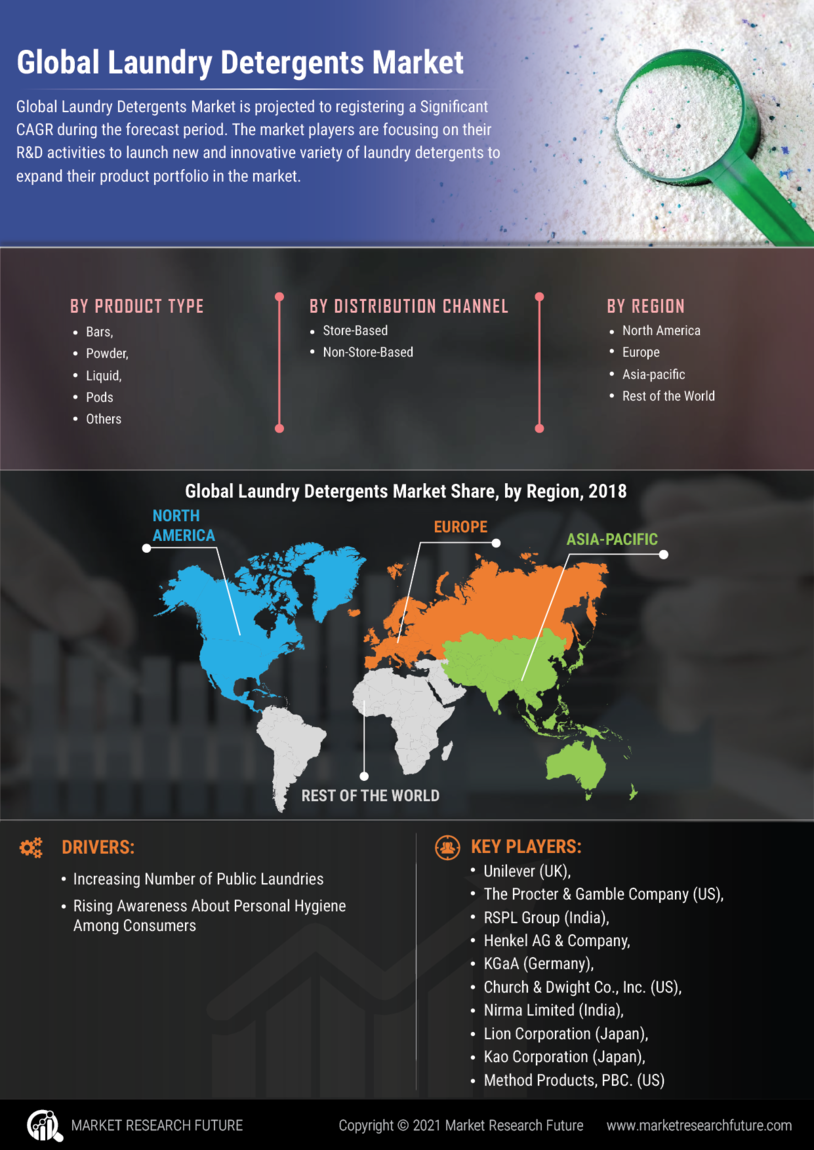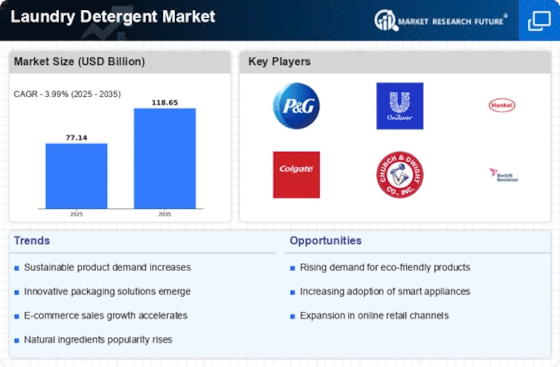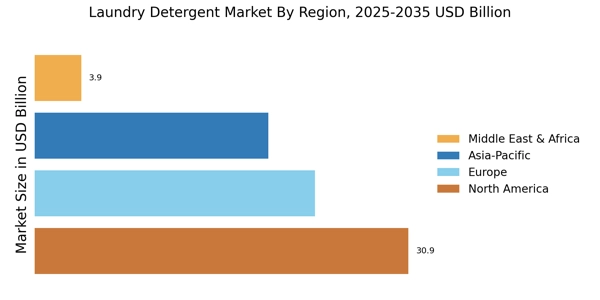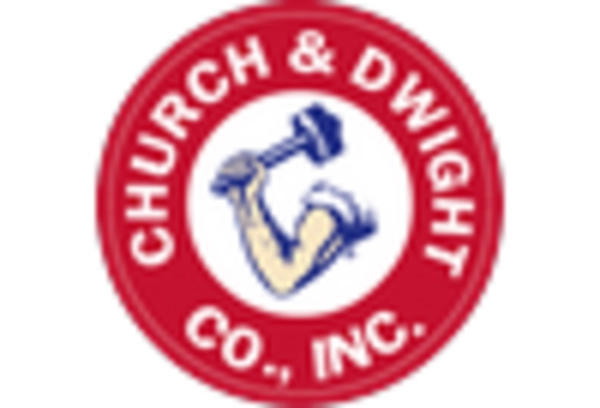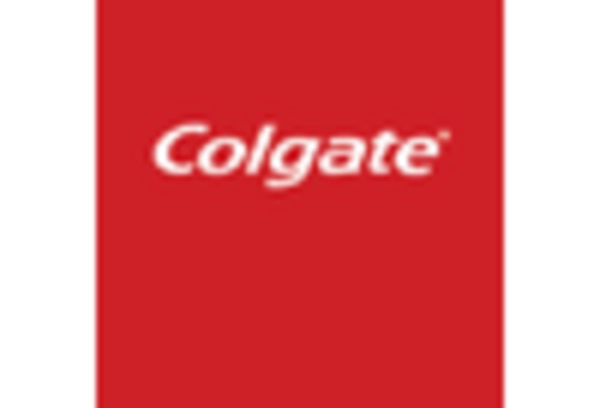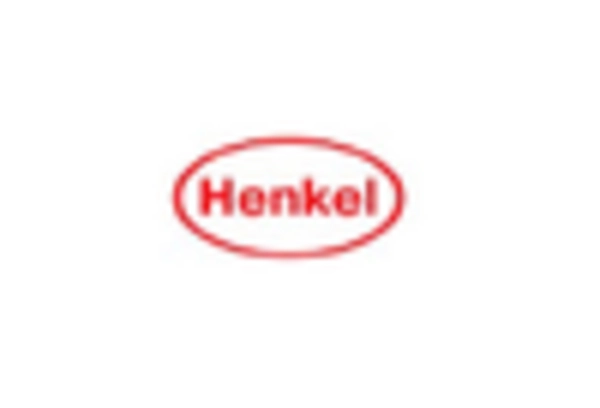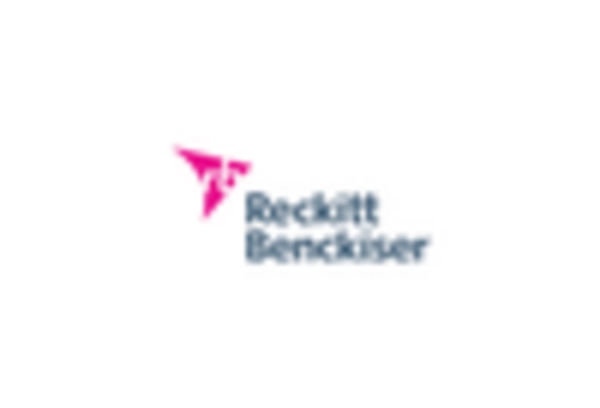E-commerce Growth
The growth of e-commerce is transforming the Laundry Detergent Market. With the increasing prevalence of online shopping, consumers are now more inclined to purchase laundry products through digital platforms. This trend is supported by data indicating that online sales of household cleaning products, including laundry detergents, have surged, accounting for a significant portion of total sales. E-commerce provides convenience and access to a wider range of products, allowing consumers to compare prices and read reviews before making purchases. As a result, brands are investing in their online presence and optimizing their supply chains to meet the demands of this evolving retail landscape. This shift is likely to continue shaping the Laundry Detergent Market.
Regulatory Compliance
Regulatory compliance is an essential driver in the Laundry Detergent Market. Governments worldwide are implementing stricter regulations regarding the formulation and labeling of cleaning products, including laundry detergents. These regulations often focus on safety, environmental impact, and consumer protection. Companies must navigate these complex regulatory landscapes to ensure their products meet the required standards. Compliance not only helps in avoiding legal repercussions but also enhances brand reputation among consumers who prioritize safety and sustainability. As regulations continue to evolve, the ability to adapt to these changes will be crucial for companies operating in the Laundry Detergent Market.
Sustainability Initiatives
The Laundry Detergent Market is increasingly influenced by sustainability initiatives. Consumers are becoming more environmentally conscious, leading to a demand for eco-friendly products. This shift is reflected in the growing market for biodegradable detergents, which is projected to reach a value of approximately 5 billion dollars by 2026. Companies are responding by reformulating products to reduce environmental impact, utilizing plant-based ingredients, and minimizing plastic packaging. This trend not only caters to consumer preferences but also aligns with regulatory pressures aimed at reducing carbon footprints. As a result, brands that prioritize sustainability are likely to gain a competitive edge in the Laundry Detergent Market.
Technological Advancements
Technological advancements play a pivotal role in shaping the Laundry Detergent Market. Innovations in formulation chemistry have led to the development of high-efficiency detergents that require less water and energy during washing. For instance, the introduction of cold-water detergents has gained traction, as they perform effectively in lower temperatures, thus saving energy. The market for such products is expected to grow significantly, with projections indicating a rise in demand for energy-efficient solutions. Furthermore, advancements in packaging technology, such as single-dose pods, enhance convenience and reduce waste, appealing to modern consumers. These technological improvements are likely to drive growth in the Laundry Detergent Market.
Changing Consumer Preferences
Changing consumer preferences are a driving force in the Laundry Detergent Market. There is a noticeable shift towards premium and specialized products, such as detergents designed for specific fabrics or those that offer stain removal capabilities. Market data suggests that the segment for premium laundry detergents is expanding, with consumers willing to pay more for perceived quality and effectiveness. Additionally, the rise of health-conscious consumers has led to increased interest in hypoallergenic and fragrance-free options. This evolution in consumer behavior indicates that brands must adapt their offerings to meet diverse needs, thereby influencing product development strategies within the Laundry Detergent Market.
